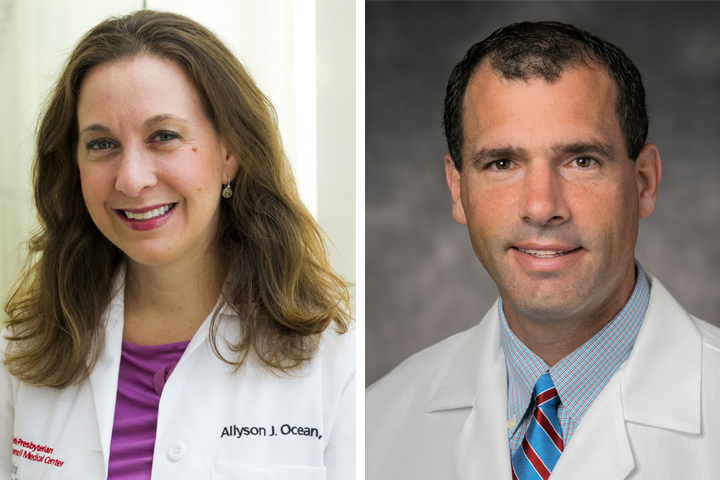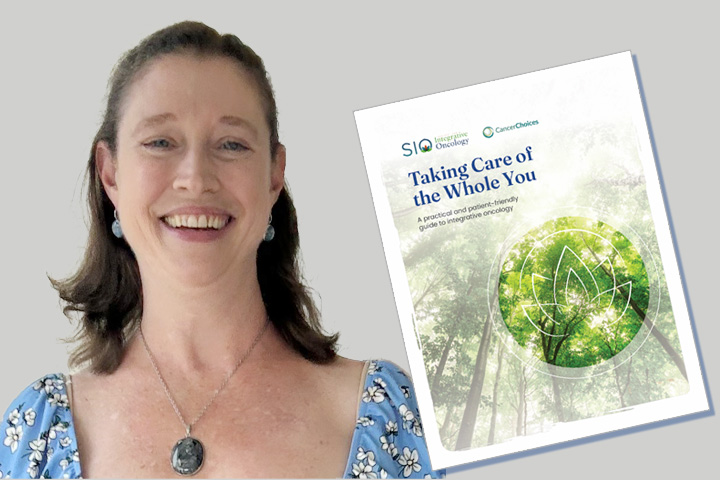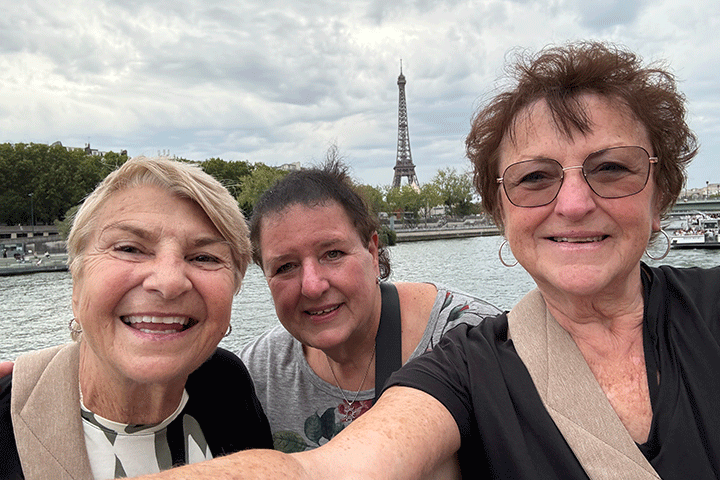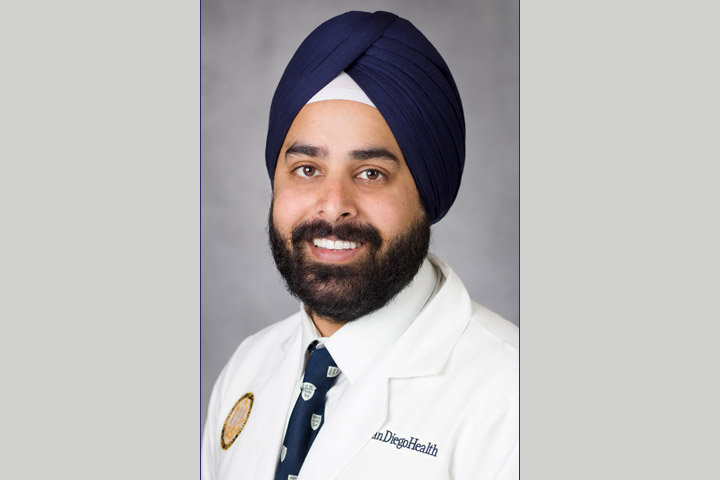A Second Opinion: Important for Pancreatic Cancer Patients

What all pancreatic cancer patients agree on is that hearing their diagnosis was devastating.
Facing a new reality of having one of the toughest-to-treat cancers can indeed be overwhelming. That’s why it’s so important to make sure your treatment plan is the best possible one for you, say experts. One way to do that is with a second opinion.
The reasons why pancreatic cancer patients seek second opinions are as varied as the patients themselves. “One of the things I pride myself on is spending time with my patients and explaining options,” says gastrointestinal oncologist Allyson Ocean, M.D., Associate Professor of Clinical Medicine at Weill Cornell Medical College of Cornell University, and medical oncologist and attending physician in gastrointestinal oncology, Solid Tumor Division, at New York-Presbyterian Hospital/Weill Cornell Medical Center, New York. “I see a lot of second opinions, but I also encourage my patients to get a second opinion. I’ll give them names. That’s because pancreatic cancer is extremely complex, and patients need to feel comfortable with their treatment plan and the medical professionals who are going to be carrying out that plan. Anything less than that makes it harder on the patient, and none of us want that.”
But there are other equally important reasons to get a second opinion. “Sometimes a patient will come to me for a second opinion simply for reassurance the recommendation they currently have is the same thing that we would do,” says Ocean, adding that’s a fairly common scenario, though in many cases a treatment approach can be “slightly tweaked,” she adds. However, there are some instances in which pancreatic cancer patients are not told about innovative treatments simply because their current doctors weren’t aware of those treatments and they aren’t experts in pancreatic cancer care. “What patients forget sometimes is they have every right to a second opinion, and to consult other experts at any point in time, really,” Ocean states.
A Team Approach
A team approach to pancreatic cancer treatment is absolutely paramount to good care, says surgical oncologist Dr. Jordan Winter, Chief of Surgical Oncology at University Hospitals and Director of Surgical Services at University Hospitals Seidman Cancer Center, in Cleveland, Ohio. Pancreatic cancer surgery, followed by adjuvant chemotherapy, is the only potentially curative treatment. But in most cases, the disease has advanced too far for this option. The good news is that better imaging, innovative surgical techniques, and, in some cases, neoadjuvant therapy have helped more people become surgical candidates.
“The data strongly suggest that having a really good long-term outcome would integrate surgery into the treatment plan, but not every pancreatic cancer patient is going to be a surgical candidate,” Winter explains. “And remember we don’t cure every patient with surgery. So the ultimate goal is to engineer the best treatment plan with the goal of getting people to live longer lives.”
In order to achieve that goal of engineering the best plan, a multidisciplinary approach is essential. “There’s not a universal need for a second opinion,” Winters says. “But it’s important to be treated at a place—and if a patient has the means to be treated at a place—that has a deep experience managing pancreatic cancer.”
“If patients are managed somewhere with less experience in pancreatic cancer there is a risk of sub-optimal treatment recommendations. And for that reason I absolutely embrace that they come see us or go to another high-volume, well-reputed academic center.”
Winter sees a gamut of second-opinion patients, including those who were told they weren’t surgical candidates, but potentially are; those looking to see if there are alternatives to a major procedure; as well as those simply looking for reassurance. “It’s a privilege to be able to practice medicine and to help people get through this,” he says. “But it’s a team. And I’m a member of a team that includes intensive care, nursing, medical oncology, gastroenterology, nutrition, pathology, radiology, radiation oncology, and other specialties. I can’t emphasize enough how important it is to have that team and to be comfortable with that team when you have pancreatic cancer.”
Innovative Approaches
Learning all you can about treatment options also includes innovative approaches like clinical trials. Seeking a second opinion may alert you to your eligibility for certain trials. “Major cancer centers will have pancreatic cancer trials going on that could potentially help patients, and for that reason it’s important that people learn that they qualify for a trial,” Ocean says. “Enrolling in a trial is really about advanced cancer care and can often be the best option for a patient.”
What is somewhat frustrating for Ocean and others is that some clinicians don’t discuss clinical trials with their pancreatic cancer patients. “People need to know their options, all of them,” Ocean says. “If you are in a smaller hospital system where they don’t treat a lot of pancreatic cancer they may not even know about the trials,” she says. “A GI (gastrointestinal) oncologist like myself or other pancreatic cancer experts in a larger system are going to be much more aware of not only how to best treat a patient’s pancreatic cancer, but also we’re going to be more aware of the trials that are available or upcoming.”
“Take A Breath”
Though a diagnosis of pancreatic cancer may make you feel you need to start treatment immediately, there is always time to get a second opinion, unless it is an emergency situation. “Yes, pancreatic cancer is serious, but patients also need to take a breath and learn about options,” Ocean says. Plus, you can get second opinions at any time during the course of your treatment, although eligibility for some clinical trials may require no prior treatment or no treatment within a certain period of time, she adds. “The very best time to get a second opinion is before you receive any treatment at all or before any new therapy,” Ocean explains. “Second opinions at large centers are usually done very quickly. We understand a patient’s anxiety, but we also want to make sure that we are providing the very best recommendations.”
The American Cancer Society recommends that before you start the second-opinion process you contact your insurance company to find out what is covered under your policy. You’ll also have to gather medical records, including pathology reports, imaging, and any other reports, as requested.
There are many resources to help you find a qualified second opinion, including the National Comprehensive Cancer Network, pancreatic cancer advocacy groups including the Lustgarten Foundation and Pancreatic Cancer Action Network(PanCAN), and your current doctor.
“Your doctor can be a great resource in terms of recommending someone for a second opinion,” Ocean says. “Doctors have a lot of respect for the expertise of other doctors, especially with pancreatic cancer. It really is very collaborative.”
It’s also important to remember that any treatment plan you choose has to be aligned with what you want and your values. “Cancer treatment can be tough, we all know that,” Ocean notes. “So whatever you do, remember that trusting your team in all facets of your care, physical and emotional, is just as important as what your team can offer in terms of treatment.”






